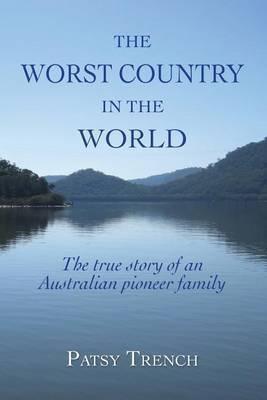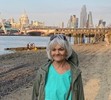Patsy Trench's Blog, page 11
April 7, 2015
Family history book 2: Convicts
It’s been a very long time since I blogged about anything. (I still find it difficult to find the time to research and/or write and keep up a blog.) But as I embark on another family history adventure I thought it might be useful and/or entertaining for any others out there doing the same to file the odd report . Some of these items date back to late last year but I hope now to keep posting regularly-ish.
~~~~~
The first thing I’m realising as I embark on book 2 of the family saga is, as with childbirth, if you risk leaving it too long between babies and/or books you risk forgetting how to do it.
These are my thoughts as I wend my way to the National Archives here in Kew in south London: how do you do this? Where do you start? Which way round does the nappy go/how do you apply for a reader’s ticket? Why can’t I remember anything?

nationalarchives.gov.uk
This time round I’m starting with my Australian convict ancestors, who were hidden from view until a couple of generations ago. I have some information about them thanks to previous family genealogists but no references. What’s more they have difficult names (difficult as in common) – John Johnson and Mary Moore. Do you know how many John Johnsons were transported to New South Wales in the 19th century? (No, nor do I, but there are pages of them.)
As you register for a reader’s ticket you are taken through a five-minute video of how to handle ancient and precious documents which I pay scant attention to as I don’t think they’re going to apply. (I am very wrong.) Then with the help of the friendly staff at the NA I am taken on a guided tour of the relevant parts of their website, I find the documents I am looking for, order them up, go down to the cafe for a break and half an hour later there they are in my allocated locker: two ancient tomes with handwritten records of trials that happened over 200 hundred years ago; and later on in a different room, parchment scrolls detailing the crimes and punishments meted out to convicts at – in my case – Staffordshire and Sussex Assizes in 1808. At which point a light bulb clicks on inside my ailing brain and it all comes back to me: this is why family history is so fascinating – these ancient documents, some of them so unwieldy they have to be held down by weights, these are what bring my ancestors to life. (And in some instances ‘life’ means something else entirely).
I learn that my great x three grandfather John Johnson, a potter from Staffordshire, was along wiyth another ‘… at this assizes severally convicted by their own confession of feloniously and without lawful excuse having in their custody Bank of England notes knowing the same to be forged and counterfeited for which they were sentenced to be transported to parts beyond the seas for the term of 14 years.’
I discover that my great x three grandmother Mary Moore was at the same time but at different Assizes ‘Committed the 19th October 1807 by the Right Honourable Lord Leslie charged on the oath of Elizabeth Cunningham with feloniously stealing at Gatton, one red cloth cloak, two muslin aprons, and divers other articles of wearing apparel [valued at £1.13s.6d] the property of Jane Cunningham … jury says not guilty of breaking and entering the ‘Dw. Ho’ [dwelling house] say guilty of stealing the goods …To be transported beyond the seas for the term of seven years to such place.’
So there we have it – the what, if not the why. Why did a potter from Staffordshire knowingly have forged banknotes in his possession? Why did a 19-year-old girl from Surrey steal items belonging to what I assume was her employer’s daughter, when the sentence for others who were found guilty of stealing goods worth £2.2s. was ‘let them be severally hanged by the neck until they are dead’?
In the end I have to be virtually thrown out of the Archives at closing time at 5pm. Deeply tired but deeply happy.
Welcome back to the world of family research. Like having babies you don’t really forget how to do it, but you do forget the pleasure it brings.
September 12, 2014
The Forager and the Farmer
In 1839 colonial New South Wales the Legislative Council sent a questionnaire to all pastoralists asking for feedback on the usefulness or otherwise of any aboriginal labourers they employed on their land. In answer to the question – How could the ‘Native Blacks’ be induced to work harder – one respondent replied: ‘By cutting off their great toes. They could not then climb the trees for opossums. Two hours so spent or in fishing will supply them with all they want for the day; why then should they vex themselves with the drudgery of labour? They are not fools…’ The Council clerk’s handwritten response, scribbled on the front page, went, ‘As it conveys rather more insult to the Committee than information, I shall be authorised to exclude from those selected for publication.’
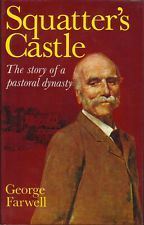
Published 1973 (image from Ebay)
This is a shame, as while it may have been a tongue-in-cheek response from the pastoralists (William Ogilvie and George Wyndham) it contained what seems to be a great truth: if it is possible to acquire in two hours enough food for a family to eat why does a farmer need to spend around fourteen hours a day doing the same?
I was thinking about this as I was listening to Radio 4’s featured Book of the Week, Sapiens: A Brief History of Humankind, by Yuval Noah Harari. Dr Harari, an Israeli historian, claims the agricultural revolution, which occurred roughly 10,000 years ago when hunter gatherers discovered wheat – or, more to the point according to Harari, wheat discovered the hunter-gatherer – and turned from foraging to farming, was a ‘fantasy’. That rather than improving our life-styles, by making us reliant on one not particularly nutritious plant, that was vulnerable to the weather and to pilfering, we turned from healthy people with lots of leisure time into stressed individuals who worry constantly about the future.
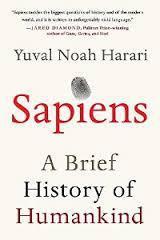
Published 2014 (image from Amazon)
I was also thinking about all this as I was reading The Timeless Land by Eleanor Dark, about the early days of colonial New South Wales, in which she shows the arrival of the Europeans from the point of view of both settlers/invaders and the settled/invaded. The assumed superiority of the first had nothing to do with any kind of superior intelligence (except they had firearms), rather the opposite. The supposedly civilised Europeans had a far harder time surviving in the Great South Land than the indigenous people who had lived there for upwards of 40,000 years. And yet in the mid 19th century any suggestion that the aboriginal people knew better, that they lived a far easier life than any pastoralist because they were ‘not labourers at all, and for the same reason that any other gentleman is not, viz that he can live without labour… They realise the philosophy that Diogenes only dreamt of, yet are no Cynics, rather Gymnosophists’ was considered not just a joke but gross insubordination.
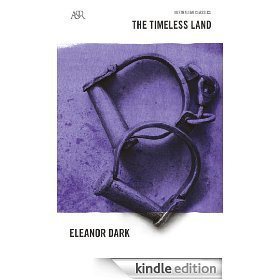
Published 1940 (image from Amazon)
Still, that’s the thing about progress. There’s no going back, even if ‘back’ is a better place than forwards. If for some weird reason the Europeans had not arrived at the great south land until 2014 they’d have been probably been worse off now than they were in 1788. There are not many people left in ‘civilised’ Europe who can kill a moving animal with a gun. And the prospect of having to manage the land without machinery or telephonic communication is unthinkable. We’ve come a long way baby, further and further away from the stuff that made us what we are.
Committee on Land Bill, Notes and Proceedings, legislative Council 1839
William Ogilvie and George Wyndham, Squatter’s Castle: the life of Edward Ogilvie, by George Farwell, 1973.
June 23, 2014
Booktopia
At last a genuine rival to Amazon in Australia.
I have only just become aware of Booktopia. It was started up ten years ago as a family business and now has a turnover of AU$40 million a year. The focus is on Australian writers and the bulk of their business is, perhaps surprisingly, in print rather than ebook. Or perhaps, on reflection, not so surprisingly, as one of the great things about Booktopia is its postage prices which, at $6.50 to anywhere in Australia, makes it a far cheaper option than Amazon.
You can read more about it here.
My own book for example, in paperback, would cost an Aussie buyer AU$22 from Booktopia, including shipping, as opposed to AU$27.50 from Amazon. Much as I love Amazon (truly, if only they would pay their warehouse people better) it is hugely encouraging to know there is proper competition out there. And with a bit of luck Booktopia pay their taxes too.
Is there a British equivalent? And if not why not?
June 16, 2014
Pitches and pigeonholes
I was thinking about pigeons and the holes they live in (do they?) yesterday, as I was watching The Pen Factor, the last event in The Literary Consultancy’s annual conference ‘Writing in a Digital Age’.
The Pen Factor, which takes its name from The X Factor, features a group of brave writers who are given a limited time to pitch and read extracts from their books to a panel of agents, who are themselves given a limited time to respond, and all this in front of an audience.
There seemed to be a preoccupation on the part of some panel members with genre: ‘Is it really a psychological thriller?’ said one. ‘It doesn’t sound like a thriller setup to me.’ Bearing in mind the limited time allotted to both writers and agents you might think this was a distracting waste of time, as did TLC’s founder, Rebecca Swift. ‘Don’t try and define the genre’, she admonished from the audience, ‘it’s a beautifully written, idiosyncratic book, not necessarily of majority appeal but a beautiful book nonetheless.’ The writer of it admitted agents had told her before they found it ‘hard to place’, so what did she do? She self published it.

Journey into the Interior, by Sylvia Moody
Before coming down too hard on the agents however it’s worth remembering that when they take on a book they too will be given a few minutes perhaps to pitch it to a publisher. So if they can use that time to say, ‘It’s a thriller with Sci Fi elements, a mix of suchandsuch (insert appropriate bestselling title/author here) and suchandsuch (ditto), rather than, ‘it’s about a woman who after a mystery illness receives odd visitors and communes with vases and the supernatural and some of them are imaginary and some real and it turns out they’re all part of her in the end and it doesn’t really fall into any particular category’, their job is somewhat easier.
So hello self publishing, where while a book has to fit Amazon’s (or Smashwords’) categories to some extent nobody is going to turn it down because it isn’t strictly a thriller or a romance or crime or even a literary novel. I’m about to face a similar problem myself with a period romance that contains elements of erotica. Were I to market it as erotica it might sell quite well but it would disappoint a lot of readers expecting whips and leather and wall-to-wall fornication, if that’s what readers of erotica expect.
Besides it’s hard to know which agents would be likely to handle such a book. As the panel showed it is vitally important, if you are looking for an agent, to find the right one. Not necessarily the biggest or the most successful but the one who is most likely to really love your book and to put time and energy into promoting it. Researching them online is all very well but for most writers this isn’t enough.
Yet another reason to self publish?
June 13, 2014
Festivals, conferences & inserting images
The AusNZ festival of literature and the arts is all over now. I blogged about it on my other site at The Worst Country in the World, and there’s more on the Festival’s official site at http://ausnzfestival.com/news/. It was a fantastic event and the hope is to make it a regular one. If you want to be included in their emailing list have a look at their site.
Happening right now as I type this is (and being tweeted on @TLCUK) is the now annual TLC Conference: http://literaryconsultancy.co.uk/2014-conference/
It starts today, Friday and continues on till the end of Saturday plus a ‘bonus’ half-day on Sunday. It’s always a buzzy event stuffed to the gills with information and the chance to chat to fellow writers, agents and other folk involved in the trad and self publishing business. If you’re there on Sunday come and say hello!
~~~
Meanwhile I’ve been genning up (not before time) on how to insert images into ebooks. Like so much else to do with ebooks it is, once you get your head round the instructions, dead easy.
I’ve updated my book to include these instructions (though not yet for print, which is to come). It’s available here – http://www.amazon.co.uk/dp/B00EPEN5UY – for 77p.
Here they are:
The images must be in jpeg, gif or tiff format. If your originals are Word documents, as mine were, you can convert them into jpegs by printing them out and scanning them into your computer.
Bear in mind that your images will show up on some e-readers in greyscale, which means some colours may more or less disappear.
Inserting images
First, create a folder for your images, and name and number them in the order in which you want to insert them into your text.
In your text, place your cursor where you want to insert an image, click on Insert>Picture>Browse to the relevant file, click on the image and click Insert. Centre it.
Don’t put a page break before the image, and only add one space after it. Don’t worry if gaps appear before or after the images on your Word document.
Save this document in Word, and then as Web Page Filtered. Close it.
Submitting
In your manuscript folder you should now see, in addition to your Word document, your Web-saved document and another folder that has been created for you with the same name. This second folder contains your images and has to be included with your web-saved document, which you need to zip, or compress.
To zip your web-saved document: right click on it, Send to>Compressed (zipped folder). A new folder will appear with a zip in it.
Drag the second folder containing your images into this folder. This zipped folder is the document you will be submitting.
Done!
Patsy Trench
London, June 2014
June 2, 2014
AusNZfest (2)

Programme cover
It’s all over now as of yesterday and what a packed-full event it was. Three and a half days of wall-to-wall discussions, debates, workshops and performances, all taking place in the sober surroundings of King’s College in the Strand.
Most of the speakers and performers (not all) are resident in Australia and NZ so I’ve no idea how they managed to get them over here, but get them they did. There were discussions and readings on aboriginal folk tales and poetry with writers and poets such as Anita Heiss, Bruce Pascoe and Ali Cobby Eckermann, workshops on writing historical fiction, appearances by Tim Winton and Clive James, the latter a highly emotional event, plus plus plus.
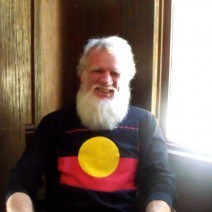
Bruce Pascoe
Then there was The Big Debate: the cultural cringe is over.
Well, the consensus seemed to be that it is; that Aus and NZ no longer have to cringe or feel culturally inferior. If there was a feeling of ‘protesting too much’ that was simply the nature of the debate. As Anita Heiss said she’s never been asked to debate the topic before, it isn’t something that preoccupies Australian artists back home, they’re too busy doing what they do.
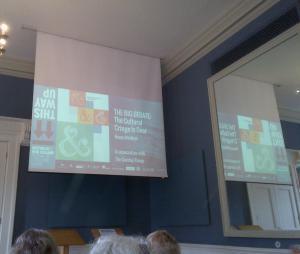
The Big Debate
It’s a topic that resonates with me deeply. When I first arrived in Australia as a ten pound Pom back in the late sixties looking for acting work everyone thought I was the bees’ knees. A few years later the attitude started to change to something like ‘who do you think you are?’ In my later visits nobody seems to care a hoot where I come from, though one cove did question me about my ‘accent’. (Accent, what accent?)
Anyway, if there is a cultural cringe then it’s us Brits who are partly responsible for not taking more of an interest. More than one agent and publisher has told me over the years ‘nobody wants to read about Australia’. And as I’ve said elsewhere one of the best selling indie authors is a New Zealander who self published her book because publishers told her ‘nobody wants to read about New Zealand’. If that’s true, and I really don’t think it is, then the fault is ours. There are so many great stories coming out of those countries and if we’re too busy watching homemade hard-to-tell-the-difference-between-them cop series on our televisions to pay them attention then we’re the ones missing out, imho.
I hope the festival continues to be a regular event and if it does, I highly recommend going along if you are in any way interested in Australian and NZ culture, and even if you aren’t, you may be converted.


May 16, 2014
Introducing Shelley Weiner
As I have said elsewhere, and often, the one person no writer – however experienced, and whether self published or otherwise – can do without is an editor. The editor is the person who comes to your work fresh and assesses whether it works structurally, makes sense, and does not repeat itself. The editor is not strictly speaking an assessor, and he/she is definitely not a proofreader, but if you are lucky she/he will offer her or his opinion on your work and how and if it can improved.
I was very lucky to find Shelley. She did a magnificent job editing my book The Worst Country in the World. She was sensitive to the material and did not try, as a previous potential editor had – changing ‘the wind got up’ to ‘the wind rose’ for example – to alter things for the sake of it.
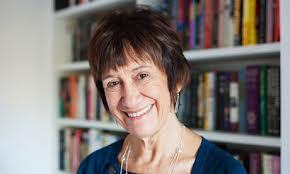
Shelley Weiner (guardian.com)
Finding the right editor is like finding the right partner. You are looking above all for someone who understands what you are trying to achieve and who does not impose their own style on your writing, or to ‘correct’ your obvious (and deliberate) idiosyncracies.
In addition to her editing work Shelley is an established author of five novels and many published short stories. Her book ‘Writing your first novel’ is being published in June by The Guardian as part of a series of ’60-minute Masterclass’ ebooks. She also teaches creative writing and mentors new writers, and it is this that I wanted to ask her about.
P: How would you describe the job of an editor?
S: A good editor aims for an understanding of what the writer is trying to say and whose story it is. Having achieved this, the aim is for CLARITY. This means finding a balance between what the writer aims to say and the economy of language with which to say it. The ultimate aim is to achieve the kind of transparency that allows a reader to be drawn without distraction into the heart of the story.
P: As an editor and tutor what are the commonest errors you encounter among your student writers?
S: It’s at the character invention stage – which, for me, comes right at the beginning of the process – that many new writers falter. So often, and even when they have written large chunks of their novel, I find that they don’t know their characters in the deep, multi-dimensional way that is essential for strong believable fiction. The other big stumbling block is control of point of view – meandering without particular reason from one character’s consciousness to that of another. That can be distracting and confusing. As a reader, I lose faith in the skill of my storyteller.
Personal comment: I’d like to add to this something Shelley told me once, which is that a large chunk of her student writers DON’T FINISH THEIR BOOKS.
P: Do you have any particular words of advice to writers, beginners or otherwise?
S: Writing fiction is a complicated process that takes imagination, commitment, and skill. This last requirement is more complex than is generally perceived. While few people begin piano lessons with an assumption that the concert hall is only a few scales away, many new writers dream of instant publication. They are perhaps less excited by the prospect of a long hard slog with very little fame or fortune at the end of it. So only write if you really want to do it. Among the many talented writers I’ve encountered in my decades of teaching, those who succeed at any level have tenacity.
P: How does your work as an editor and tutor impact on your own writing, if at all?
S: I try to separate my activities and, while I’m writing, suspend the critical part of my brain that might impede the flow. The problem is not so much cross-contamination but the pressure of time. Unless I’m extremely strong minded about dividing my days, it’s easy for the teaching and mentoring to swallow the weeks. On a positive note, I have learnt an incredible amount about my writing from the close scrutiny of others’, and feel that engaging with new writers is a highly creative process.
P: The burning question: do you think it is possible to teach someone how to write?
S: I believe that we all have a right to write, and that the first vital requirement is the will to do it. Beyond that, however, is the technique: the skills required to create an illusion of reality, to depict a fictional world that seems plausible to the reader. To that extent – yes, those skills can be taught. But some people have a particular and innate ability to shape a narrative and enthral a reader. That too can be honed with practice, but I’m not sure if it can be taught.
P: Now you have self published your books as ebooks what are your views on self publishing?
S: I think self-publishing is a wonderful opportunity for writers. One of the worst aspects of finishing a novel is the sense of powerlessness, the passivity induced by waiting for responses for agents and/or editors. While I believe that there is still a strong place for conventional publishing, it is a great thing for writers to have at their disposal – and within their reach – the possibility of finding their own readers. For me, the process of writing is incomplete without readers to close the circle, and self-publishing allows that to happen – and more. Increasingly we hear stories of writers whose self-published novels achieve online success and are then discovered by mainline publishers. As a tutor, I’m delighted to be able to put forward a proactive route to publication. It’s a refreshing alternative to all the bad news I’ve had to transmit: difficult climate, very few new novelists being taken on, etc.
~~~
~~~
SHELLEY WEINER’S novels include A Sisters’ Tale, The Last Honeymoon, The Joker, Arnost, and The Audacious Mendacity of Lily Green. She is the author of ‘Writing your first novel’, a ’60-minute Masterclass eBook’, to be published by The Guardian in June 2014. Shelley presents workshops on fiction for Guardian Masterclasses, Faber Academy, Skyros Writers’ Lab, The Literary Consultancy and others that include Birkbeck College, Anglia Ruskin University, the Open University, the British Council, and Durham University Summer School. She is a mentor on the Gold Dust Scheme and a trusted Reader for The Literary Consultancy. Shelley’s website: www.shelleyweiner.com


May 8, 2014
Australian & NZ Festival
The full title is the Australia and New Zealand Festival of Literature and the Arts, and it takes place from Thursday 29 May to Sunday 1 June at King’s College University campus on the Strand in London. As far as I can see it’s a first, and they have an impressive line-up of Aussie speakers such as Tim Winton, Helen Garner, Bruce Pascoe, Clive James, John Pilger and Kathy Lette, and other luminaries including Margaret Drabble, Rebecca Swift and the supremely talented Ben Whishaw, plus many many more far too numerous to enumerate. Day passes to the festival are £30 and weekend passes £80 (presumably for the four days).
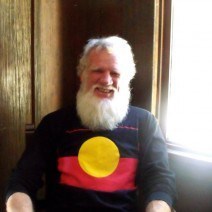
Bruce Pascoe
In association with the festival the Bush Theatre is featuring a season of short plays by Australian writers on Friday & Saturday 24 & 2th May called Going Bush.

Going Bush
I’m thrilled to bits by this and hope it’s a wild success. Aussies – and New Zealanders too I’ve no doubt – punch way above their weight when it comes to books, both writing them and reading them. It’s time the rest of the world took notice of this fascinating country, and not just when members of our royal family are visiting.
Details of the festival can be found here: http://ausnzfestival.com/


Australia & New Zealand Festival
The full title is the Australia and New Zealand Festival of Literature and the Arts, and it takes place from Thursday 29 May to Sunday 1 June at King’s College University campus on the Strand in London. As far as I can see it’s a first, and they have an impressive line-up of Aussie speakers such as Tim Winton, Helen Garner, Bruce Pascoe, Clive James, John Pilger and Kathy Lette, and other luminaries including Margaret Drabble, Rebecca Swift and the supremely talented Ben Whishaw, plus many many more far too numerous to enumerate. Day passes to the festival are £30 and weekend passes £80 (presumably for the four days).

Bruce Pascoe
In association with the festival the Bush Theatre is featuring a season of short plays by Australian writers on Friday & Saturday 24 & 2th May called Going Bush.

Going Bush
I’m thrilled to bits by this and hope it’s a wild success. Aussies – and New Zealanders too I’ve no doubt – punch way above their weight when it comes to books, both writing them and reading them. It’s time the rest of the world took notice of this fascinating country, and not just when members of our royal family are visiting.
Details of the festival can be found here: http://ausnzfestival.com/
May 2, 2014
Peter Buckman

Peter Buckman (theampersandagency.co.uk)
I worked with Peter some years ago on a new play festival organised by the Writers’ and Directors Guild. He was a writer then, mostly for stage and television, with credits under his belt such as the screenplay for the film All Together Now, episodes of Morse and The House of Eliott and the TV adaptation of All Passion Spent. Since then he’s swapped writing for agenting so I thought I’d ask him a few questions about what it’s like to be on that side of the writing fence.
~
PT: You spent your working life as a scriptwriter. What made you decide to become an agent?
PB: I also wrote novels and non-fiction, journalism, and stage plays – basically anything that paid except advertising and greetings cards – but as writers grow old, commissioning editors get younger and prefer their own generation. In other words, no one was buying my work, and as my wife had been an agent selling foreign rights for many years, it seemed a sensible idea to find authors for the English-speaking market so that between us we could conquer the world. That was over ten years ago, and I’m having more fun now than ever.
PT: What sort of genres and authors do you represent?
PB: The first book I took on turned into “Slumdog Millionaire”, which either shows what incredibly good taste I have or that talent needs luck and good timing. I asked my veteran consultant Peter Janson-Smith (who represented Ian Fleming among other luminaries) if we should specialise, and he said we should wait and see what comes our way. So we take on writers whose style really enthuses us with a terrific story told in a distinctive voice. And that includes non-fiction as well as novels.

The trappings of success: Peter with Vikas Swarup
PT: As far as I know you don’t represent scriptwriters, even though you were one yourself. Is there a reason for that?
PB: My first job was as an editor at Penguin, and on the whole people in publishing are a decent bunch. Editors move around but their tastes are reasonably constant, so you know what, and who, you are dealing with. The same cannot be said of the film business; in theatre it’s as hard to get a new playwright commissioned as it is to get a poet published; and as for television, what they are looking for changes on a daily basis. So we keep sane by dealing chiefly with publishers, though of course we frequently negotiate contracts in other media, including digital.
PT: What makes you take a particular writer on? Is it simply what you perceive to be his or her commercial value, or is there more to it?
PB: Believe it or not, commercial considerations come low down in our list of priorities. Obviously we won’t take someone on if we don’t think we can sell their work, but it’s the story-telling skill, the voice, the ability to make the familiar fresh, that really excites us.
PT: What kind of books and authors are currently selling best, in your experience?
PB: Genre material seems to be doing well – crime, of course (though I detect a slight shift from the hard stuff, with lots of violence, to cosier crime), but also sci-fi, fantasy, and romance. One thing I do know is that though publishers are always saying “vampires are dead” or “nobody wants to read about angels/zombies/elves any more”, they’re pretty quick to snap up a self-published writer who’s proved readers like something familiar.
PT: You had a massive success a few years ago with Slumdog Millionaire, which started out as a book called Q & A written by an unknown author called Vikas Swarup. Can you tell us how that all came about?
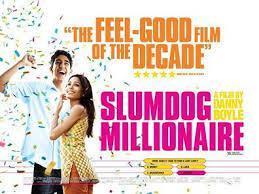
(wikipedia)
PB: It’s a bit of a fairy story. I was about to close down my computer one evening when the following opening caught my eye: “I have been arrested. For winning a tv quiz show.” I thought that was pretty intriguing, read the chapter, and rang up the author, an Indian diplomat stationed in London, to ask for the rest. When we met, he told me he’d only written the first chapter, and was going back to India in three weeks. I suggested he finish it, and he sent me the whole first draft a couple of days before leaving. I suggested some small changes, which he made on the flight home, and within six weeks I’d got him a two-book deal with Doubleday, for a six-figure advance. His editor showed the ms to Film 4’s book scout, and they asked if they could have an option. My initial response was no, as I was sure I’d get offers from Hollywood, but they persisted, and in the end we came to an agreement. I thought they were wrong to commission Simon Beaufoy to write the screenplay (he’d never been to India – but then nor had I), and certainly mistaken to get Danny Boyle to direct, as his two previous films had been flops. But the film was made amazingly quickly, did well at festivals like Toronto, and of course ended up with 8 Oscars, not to mention being sold in 43 languages. Nothing has gone so smoothly since.
PT: Other than that, what has been your biggest success so far?
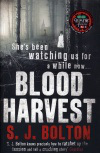
Blood Harvest by S J Bolton
PB: Sharon Bolton has done very well with Transworld. The prolific Cora Harrison always recoups her advances and earns royalties, whether writing for juveniles or adults. Georgette Heyer continues to sell hundreds of thousands of copies, even though she’s been dead for 40 years. What I’m proud of is that almost every one of our fifty or so authors has been found a publisher – and we’re continuing to work on behalf of those who haven’t.
PT: What do you personally enjoy about being an agent? Do you miss being a writer at all?
PB: I write all the time, articulating my thoughts about the books our clients send us. I’m better at reacting than creating, and I find the process of helping a writer to hone their work very rewarding. And I enjoy the lunches and parties: publishing is a very sociable profession.

The Sting of Justice by Cora Harrison
PT: Do you or your readers read everything that is sent to you?
PB: We look at everything, but we don’t read it all. We get around 100 submissions a week, every week, and if we read them all we’d never have time to work on our clients’ behalf. Which is why the first sentence/paragraph/page is so important: we put ourselves in the position of any potential book buyer, and need to be intrigued before we get involved.
PT: The thorny question: are you taking on new writers at the moment?
PB: We’re being cautious, because this is the harshest publishing climate I’ve experienced in over 40 years in the trade. But new writers are our future, so of course we are always looking for talent that tickles our imagination.
[PT: For Ampersand’s submission requirements please check their website at www.theampersandagency.co.uk]
PT: How in your experience has self publishing impacted on the book business as a whole?
PB: It’s changed it utterly, and democratised it via digital distribution. But it has also impoverished most writers, because payments (except for those who sell hundreds of thousands) are based on absurdly low prices, and there’s no quality control over content.
PT: Do you have any words of advice for writers?
PB: Trust your instinct over your intellect, and don’t be too proud to promote yourself.








